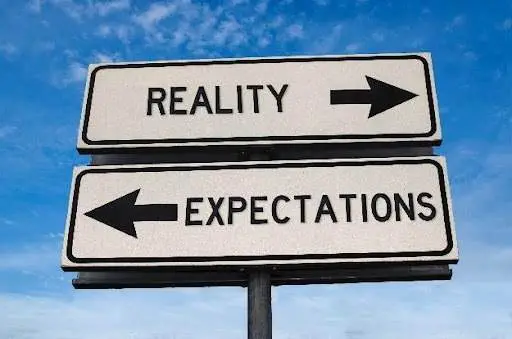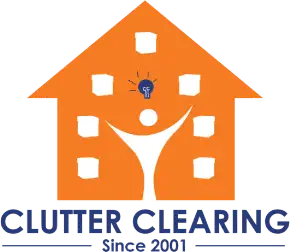Decision-Making Dilemmas

I BELIEVE IT IS / WAS WORTH A LOT OF MONEY
OK…. So what…..? What’s that got to do with the price of fish?
This isn’t just a Clutter related decision-making dilemma. Lots to people hold onto things because they believe it’s worth a lot now, or know it was worth a lot in the past.
Many people believe their home is worth a lot of money in the here and now compared to when they bought it, but so what? If you sold it and moved, your new home would have increased in value too.
Believing something is worth x,y,z because you went on the internet and found your neighbour sold their home recently, which has the same layout as yours, for triple what you paid for it, or knowing what it was worth when you or someone else bought it so you assume it must have increased in value since then, is a pointless argument or justification for keeping things in your clutter.
Whether you believe or know something in your clutter is worth x, y or z, it doesn’t change 3 important facts when it comes to making decisions about the things in your clutter.
First, there are 12 Values that you need to consider when making a decision. What you think or know it’s worth is only one of those values – the financial value.
Second, not only is the financial value of something only one of 12 values to consider, what something is actually worth is only determined by what someone else is prepared to pay for it, which as you’ll know if you’ve ever sold a property, is usually less than what you feel it ‘should’ be worth. It’s demand and supply.
Finally, the financial value is a value that is meaningless unless you actually sell it in the present. While an sits in your clutter, it’s actually WORTHLESS. Even if you tell yourself it’s an investment for the future, or you inherited it and believe or know it’s worth a fortune, if you don’t intend to actually sell it in the near future, it’s still financially worthless.
I’ve had many clients over the years who have told me they’re keeping x,y,z because it was inherited and they’re keeping it because they believe it’s valuable. When I tactfully tell them it’s not valuable because it’s taking up space in their home and not providing an income for them, they get an unwelcome lightbulb moment. When they finally do let go and do sell x,y,z, they often feel foolish for keeping it for so long having believed it was worth a fortune, when it rarely is.
The trouble with keeping things that you believe were, or are worth a lot of money, is that there’s a psychological thing going on that’s getting in the way. It’s called the Endowment Effect.
Let me explain…..
The Endowment Effect
Put simply, the endowment effect is where we become the owner of something that costs us a certain price and we then consider those items to be worth significantly more than the exact same item bought at the exact same price by someone else. We believe it’s worth significant more simply because WE have owned it.
Generally speaking the longer we own that item, the higher the expectation of what we believe it is worth in financial terms.

Some research done on this showed that by looking at the brain when people were looking at things, there is a certain part of the brain – a happy area – that is more active when people look at things they like. When they think they’re getting something for a bargain, this happy part of the brain becomes active. If they sell something for less than they want for it, a sad part of the brain becomes active.
Our brain is literally responding to different stimuli and influencing our decisions based on how we feel.
When I think about the clients I’ve worked with over the last 20 years, I can see a pattern of people suffering from the endowment effect.
My previous clients who have had their clutter for a long time i.e. more than 10 years, find it extremely difficult to make a decision to let go of things in their clutter. In addition, I’ve had dozens of clients who will not consider accepting less than the cost of an item in their clutter, even if they bought it in a sale at half price. They’ll justify it by saying they need the money.
Many of my clients who grew up in the post-war rationing era, where owning things was limited because there simply wasn’t much to own. Once they started being able to afford to buy things, they made up for not having owned things as children and began acquiring things to make up for the lack of material things in their childhood.
However, this acquiring of things has continued beyond what many may consider reasonable, and over a period of time has become a new habit to accumulate and have more than they need use.
I have many clients who believe that a particular item is more valuable now than when they originally bought it. However, as I always say to my clients, it’s only worth what someone is prepared to pay for it in the here and now, and how much effort and time you are prepared to spend trying to find someone who agrees with you about exactly what it is worth?
How does the Clutter Clearing Journey deal with the Endowment Effect?
Being aware of the Endowment Effect doesn’t make decision making any easier, it simply helps us make more realistic decisions.
There are also certain elements of the Clutter Clearing Process that help us deal with the endowment effect.
The Not Sure category ensures that we expose our brain to the items regularly to lessen the endowment effect. The to-do list element of the Journey helps highlight just how many things there are to deal with or sell so we become aware of the time versus cost issue in making realistic decisions.
You choose: Allow the endowment effect to keep you trapped in your home with your clutter, or learn how to make realistic decisions, let go of the past and become clutter free forever. The choice is yours…….
If you’re struggling to make decisions about the things in your clutter, find out how to make decisions with the Clutter Clearing Making Decisions Workshop: https://www.clutterclearing.net/workshops/
Use coupon code: MAKINGDECISIONS to save 75%
